In the nurturing and individualized environment of Montessori education, language development is a core focus, crucial for a child’s holistic growth. Montessori language arts offer unique tools that aid in this integral aspect of learning, with primer papers standing out for their effectiveness. In this blog post, we’ll explore how these innovative tools can enhance speech and language capabilities in Montessori settings.
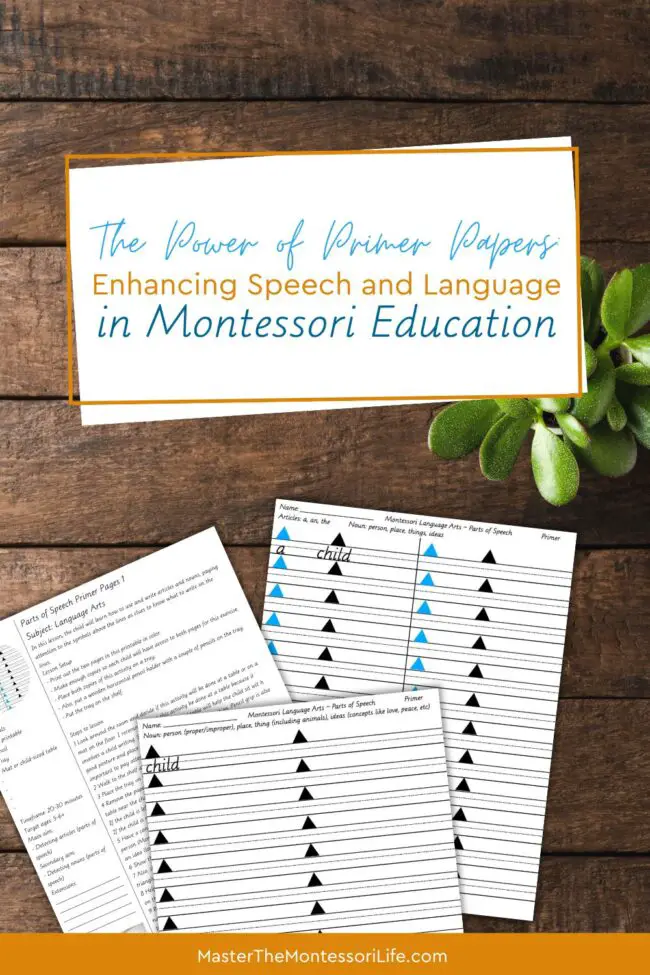
Primer Papers as Foundational Building Blocks
Primer papers are essential in the Montessori language arts curriculum, offering structured yet flexible learning experiences. They introduce young learners to the parts of speech—nouns, verbs, adjectives, and more—in a manner that aligns with Montessori philosophy.
Montessori educators can use these papers to provide hands-on, interactive lessons that foster a deep understanding of language mechanics. This foundational knowledge is pivotal, as it equips children with the ability to construct meaningful sentences, laying the groundwork for advanced language skills.
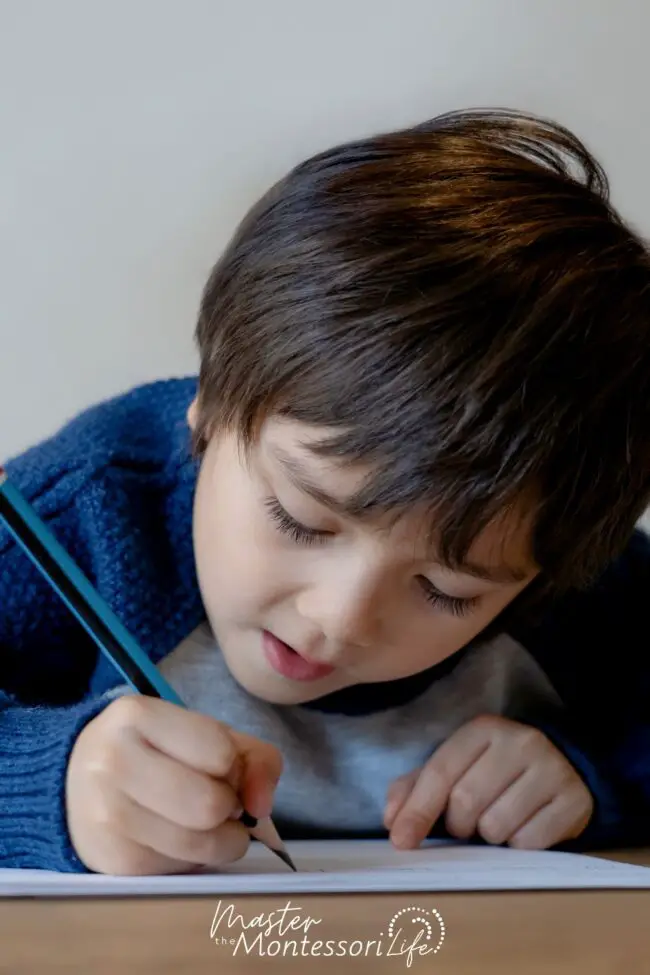
Fostering Independent Learning and Creativity
Montessori education emphasizes self-directed learning, and primer papers fit seamlessly into this approach. By allowing students to explore language at their own pace, these resources encourage creativity and independent thought.
Children learn to experiment with word combinations, enhancing their vocabulary and expressiveness. This autonomy in learning not only boosts their confidence but also encourages a love for language, which is essential for effective communication and creative writing.
Enhancing Cognitive Development Through Language
The role of language in cognitive development cannot be overstated. Primer papers support this by engaging multiple senses, catering to different learning styles, and promoting critical thinking. When students interact with parts of speech in varied contexts, they develop a nuanced understanding of language’s role in the world around them.
This multilayered learning process strengthens cognitive abilities, such as memory, problem-solving, and analytical thinking, providing a robust platform for academic success across disciplines.
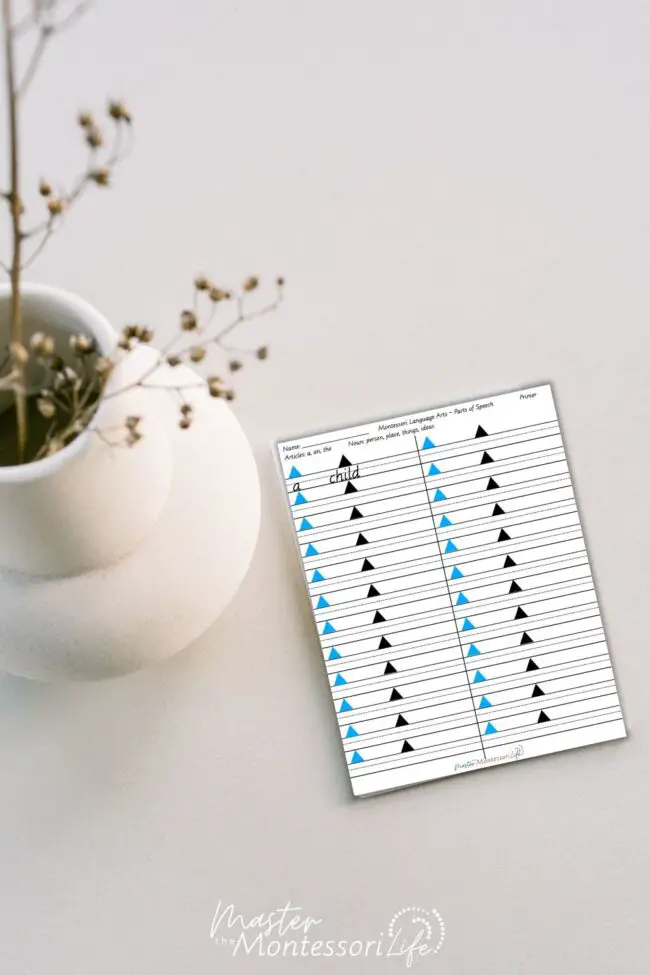
Conclusion
Primer papers are a powerful tool in the Montessori educator’s arsenal, significantly contributing to language development. By fostering an engaging, self-directed, and cognitively stimulating environment, these resources will be helpful. They will enhance not only speech and language skills but also overall intellectual growth.
For parents and educators invested in Montessori education, incorporating primer papers into the language arts curriculum is great. It is a strategic move toward nurturing articulate, thoughtful, and creative learners. Explore our lesson plans to see how primer papers can transform your classroom experience.
You might also enjoy these relevant topics:
- The Role of Montessori Parts of Speech in Language Arts
- The Benefits of Teaching Parts of Speech with Montessori Language Arts
- Teach Nouns using the Montessori Method
- A Thorough Guide to Montessori Sight Words
- Teaching Sight Words the Montessori Way
- Montessori “The Farm” Noun Cards and Grammar Symbol + Lesson Plan
- The Power of Primer Papers: Enhancing Speech and Language in Montessori Education
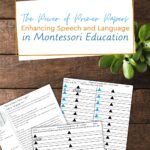 Spread the love In the nurturing and individualized environment of Montessori education, language development is a core focus, crucial for a child’s holistic growth. Montessori language arts offer unique tools that aid in this integral aspect of learning, with primer papers standing out for their effectiveness. In this blog post,…
Spread the love In the nurturing and individualized environment of Montessori education, language development is a core focus, crucial for a child’s holistic growth. Montessori language arts offer unique tools that aid in this integral aspect of learning, with primer papers standing out for their effectiveness. In this blog post,… - Including Circle Time in your Montessori Schedule
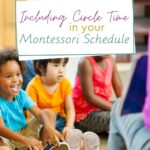 Spread the loveMontessori Circle Time plays a crucial role in fostering socialization and community building among children. Integrating this activity into the Montessori schedule, whether daily, every other day, or weekly, enhances children’s development across multiple domains. Circle time provides a structured opportunity for children to develop social skills, such…
Spread the loveMontessori Circle Time plays a crucial role in fostering socialization and community building among children. Integrating this activity into the Montessori schedule, whether daily, every other day, or weekly, enhances children’s development across multiple domains. Circle time provides a structured opportunity for children to develop social skills, such… - The Importance of Socialization with Montessori Circle Time
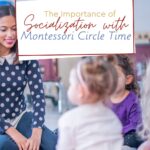 Spread the loveIn the heart of Montessori education lies an opportunity for profound social and emotional growth: Circle Time. This essential practice nurtures community connection and fosters the development of vital communication skills among young learners. As educators and parents, embracing Montessori Circle Time allows us to create a rich,…
Spread the loveIn the heart of Montessori education lies an opportunity for profound social and emotional growth: Circle Time. This essential practice nurtures community connection and fosters the development of vital communication skills among young learners. As educators and parents, embracing Montessori Circle Time allows us to create a rich,…

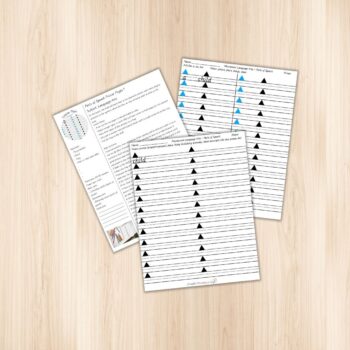


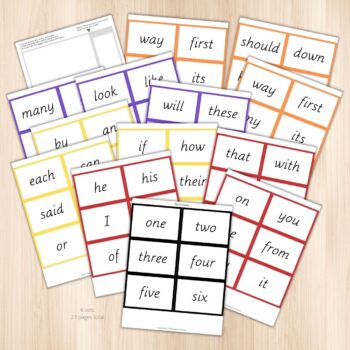
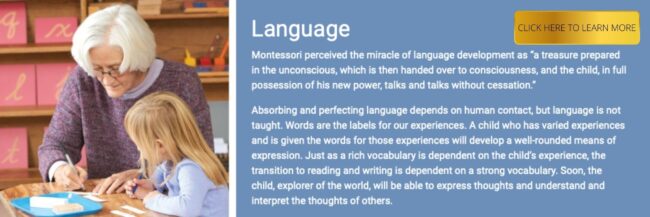
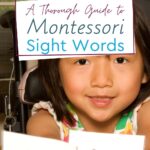
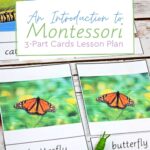
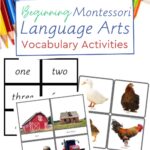
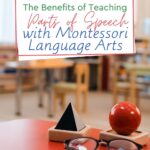
Leave a Reply